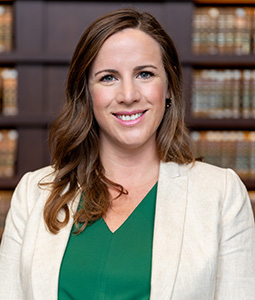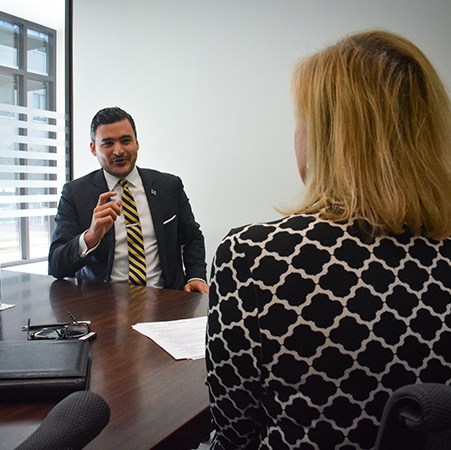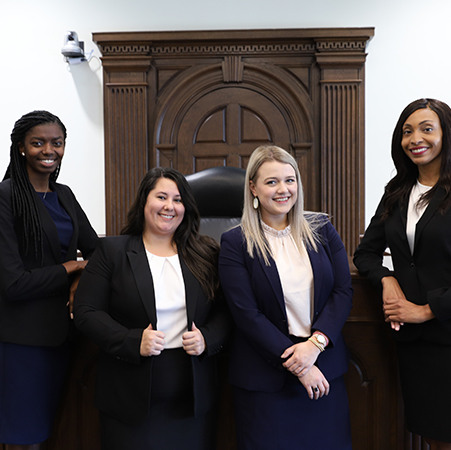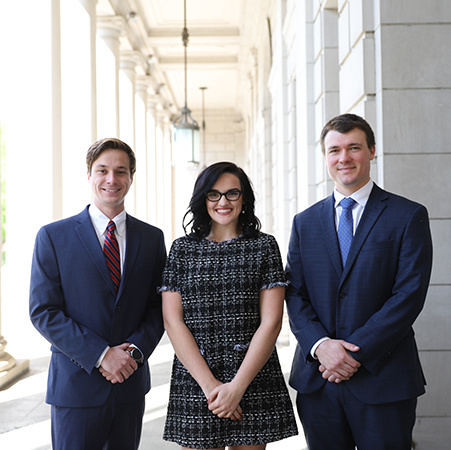
Elizabeth Crane
Chair, Professional Identity & Formation Committee
Director of Career & Professional Development
Contact Elizabeth
South Carolina Law’s initiatives to cultivate responsible and accomplished lawyer leaders reflect the law school’s long-standing commitment to student success and attorney professional development. Our efforts are linked through a platform of law school programs and services called PILLARS.
Professional Identity Formation (PIF) is the process through which law students develop a sense of their unique professional identity. It is an ongoing process characterized by self-awareness and the understanding, internalization, and demonstration of the values, ethics, and responsibilities fundamental to thriving as a legal professional.
Building upon skills introduced in the 1L Introduction to the Legal Profession class and in addition to our robust curriculum, the law school offers sequential co-curricular PIF programming throughout a student’s three years in law school, focusing on skill development in areas built on the PILLARS conceptual framework’s five core competencies: Communication & Cultural Citizenry, Innovation & Problem Solving, Resilience, Wellness & Growth Mindset, Financial & Business Acumen, and Leadership & Service. We aim for all students to develop these five core competencies and the skills contained within each competency during their time at South Carolina Law.
USC Joseph F. Rice School of Law graduates will practice law in workplaces that demand their ability to relate appropriately to diverse constituencies and manage complex relationships using sophisticated and nuanced interpersonal and communication skills. Skills and attributes that will equip lawyer-leaders to advance relationships through natural evolution and change born of conflict must begin at the law school level.
Lawyers-leaders must be able to guide others through increasingly complex and multi-faceted challenges, using new tools, and adapting to changing systems for productivity and accountability. Analysis of complex information and application of professional judgment will advance their planning and decision-making process as lawyer-leaders become visionaries as they move through their careers.
To take care of others, lawyers-leaders must take care of themselves. The ability to develop a personal value system is fundamental to professional identify formation, as is the ability to understand and develop patterns of ethical behaviors that will sustain physical and emotional well-being and personal effectiveness.
Lawyer- leaders understand their clients’ business issues as well as the “business of practicing law”, either as part of a leadership team for their organizations or as business owners themselves. Care and nurture of the client relationship and understanding the fundamental expectations of client services are fundamental skills for attorney competence. Law students will benefit from exposure at the law school level before they begin more nuanced and applied skill development with their postgraduate employer.
Lawyer-leaders must integrate varied and disparate roles as they balance their commitments to their professional development, their service obligations, their leadership skills, and their obligation to serve the greater good and the needs of the varied stakeholders they represent in a rapidly evolving legal profession.
The Rice Professional Development Fund supports law students in their pursuit of meaningful professional development opportunities. Administered by the PILLARS Committee under the guidance of the Dean, the fund provides supplemental financial assistance to students attending conferences, career fairs, and other professional events that contribute to their professional identity formation.
Current students at the Joseph F. Rice School of Law are eligible to apply. Applications are reviewed quarterly. Deadlines fall on the Friday before each review date: September 3, 2025 (Deadline: August 29); December 3, 2025 (Deadline: November 28); March 4, 2026 (Deadline: February 27); June 3, 2026 (Deadline: May 29).
Applications must be submitted more than 60 days before the travel date. Applications submitted within 60 days of travel will be considered based on the remaining available funds and at the committee's discretion.









Since 2021, the USC Joseph F. Rice School of Law’s Professional Identity Formation Design Committee, comprised of faculty, staff and administrators, has assessed and developed professional identity formation initiatives and programming.

Chair, Professional Identity & Formation Committee
Director of Career & Professional Development
Contact Elizabeth